- Home
- Bryce Courtenay
The Family Frying Pan
The Family Frying Pan Read online
PENGUIN BOOKS
THE FAMILY FRYING PAN
Bryce Courtenay is the bestselling author of The Power of One, Tandia, April Fool’s Day, The Potato Factory, Tommo & Hawk, Jessica, Solomon’s Song, A Recipe for Dreaming, The Family Frying Pan, The Night Country, Smoky Joe’s Café, Four Fires, Matthew Flinders’ Cat, Brother Fish, Whitethorn and Sylvia.
The Power of One is also available in an edition for younger readers, and Jessica has been made into an award-winning television miniseries.
Bryce Courtenay lives in the Hunter Valley, New South Wales.
Further information about the
author can be found at
www.brycecourtenay.com
BOOKS BY BRYCE COURTENAY
The Power of One
Tandia
April Fool’s Day
A Recipe for Dreaming
The Family Frying Pan
The Night Country
Jessica
Smoky Joe’s Café
Four Fires
Matthew Flinders’ Cat
Brother Fish
Whitethorn
Sylvia
THE AUSTRALIAN TRILOGY
The Potato Factory
Tommo & Hawk
Solomon’s Song
Also available in one volume, as
The Australian Trilogy
Bryce Courtenay
THE FAMILY FRYING PAN
PENGUIN BOOKS
PENGUIN BOOKS
Published by the Penguin Group
Penguin Group (Australia)
250 Camberwell Road, Camberwell, Victoria 3124, Australia
(a division of Pearson Australia Group Pty Ltd)
Penguin Group (USA) Inc.
375 Hudson Street, New York, New York 10014, USA
Penguin Group (Canada)
90 Eglinton Avenue East, Suite 700, Toronto ON M4P 2Y3, Canada
(a division of Pearson Penguin Canada Inc.)
Penguin Books Ltd
80 Strand, London WC2R 0RL, England
Penguin Ireland
25 St Stephen’s Green, Dublin 2, Ireland
(a division of Penguin Books Ltd)
Penguin Books India Pvt Ltd
11 Community Centre, Panchsheel Park, New Delhi – 110 017, India
Penguin Group (NZ)
67 Apollo Drive, Rosedale, North Shore 0632, New Zealand
(a division of Pearson New Zealand Ltd)
Penguin Books (South Africa) (Pty) Ltd
24 Sturdee Avenue, Rosebank, Johannesburg 2196, South Africa
Penguin Books Ltd, Registered Offices: 80 Strand, London WC2R 0RL, England
First published by William Heinemann Australia, a part of Reed Books Australia, 1997
First published by Penguin Books Australia Ltd, 2001
This edition published by Penguin Group (Australia), 2006
Text copyright © Bryce Courtenay 1997
Illustrations copyright © Ann Williams 1997
The moral right of the author has been asserted
All rights reserved. Without limiting the rights under copyright reserved above, no part of this publication may be reproduced, stored in or introduced into a retrieval system, or transmitted, in any form or by any means (electronic, mechanical, photocopying, recording or otherwise), without the prior written permission of both the copyright owner and the above publisher of this book.
9780857960139
penguin.com.au
To my two sons Brett and Adam
who would not be who they are if their
great-great-grandmother had not
walked across Russia carrying a
large cast-iron frying pan.
AUTHOR’S NOTE
When this book first appeared it was designed as a series of interconnected short stories which, when taken all together, became a novel. This seemed to me to be quite a nice idea at the time. It was a different-looking book, richly illustrated in colour and black and white by Ann Williams and with a recipe suggestion at the end of each story.
In retrospect I suppose it was a bit of a hotchpotch, neither fish nor fowl, so that booksellers didn’t quite know what to do with it. Was it a book of short stories? Did the colour illustrations suggest it was a young person’s book? Perhaps even a cookbook? Or was it a novel in a form they’d never seen? As it turned out, they could never quite decide, with the result that my publishers felt that the book had not received the attention it deserved.
Finally, the editors at Penguin Books persuaded me to see if by rewriting it, eliminating the colour pictures and the recipes and by rewriting the front and the back sections and some other parts of the narrative I could put it into a more conventional format for a novel.
The Family Frying Pan is not so changed that if you have a copy of the original you will need to purchase this one. But if you’ve never read it, I must reluctantly conclude that I think this is the better of the two versions. I shall miss the glorious colour pictures and the recipes but we have retained the delightful black and white illustrations, which I think give this book a lot of character.
Like a great many of my stories The Family Frying Pan is based on the truth. Mrs Moses did exist, she did walk across Russia carrying a large cast-iron frying pan on her back and she was the early morning scourge of Bondi Beach. Moreover, she is the original inspiration for the book and these are her stories, given always that in the folk-story genre fact and fiction are identical twins. I hope you will enjoy her adventures.
ACKNOWLEDGEMENTS
As always in the making of a book there are others to thank. Benita Courtenay, not only for gifting me her Jewish family and with it the incomparable Mrs Moses, but also for always being there. Kay Ronai, my editor for this version of the book, and Clare Forster, my publisher. I neglected in the original book to thank Margaret Gee for her considerable help and do so now. Finally there is Ann Williams who did the illustrations and whose black and white etchings continue to enhance this edition.
INTRODUCTION
When I married into my wife’s family I inherited her grandmother, Mrs Moses. That’s what she was called by everyone in the family, not mama, or mum or nana or buba or even grandmother, simply Mrs Moses. My in-laws referred to her in this way and even addressed her as Mrs Moses. Her first name was Sarah, though she’d been Mrs Moses for so long I doubt whether her own daughter remembered her name. There was nothing cold or formal about this appellation, nor was it intended as a sign of respect. Mrs Moses simply couldn’t be called by any other name and still remain herself. From the age of sixteen and unmarried, she had been known as Mrs Moses and it had been ever thus. How this all came about is a part of her story.
Mrs Moses was a famous identity around Bondi Beach. Every sunrise of the year, except for those which occurred on a Friday, would find her ploughing across the sand in her droopy black old-lady bathing suit heading for the surf. Pelting rain, gale-force winds fierce enough to bowl her over, as they often did, waves crashing down, throwing spume and angry spray at the shoreline, it made no difference. At dawn Mrs Moses was ready to bathe.
When, on occasion, the beach was too dangerous for swimming, the king tides smashing against the sea wall, she’d use the handle of her walking stick to knock on the door of the Bondi Lifesavers Club until someone forced it open against the wind and the rain.
‘You call this weather!’ she’d sniff, shaking a tiny bony finger at whoever appeared. ‘From weather you know nothing, young man, in Russia is weather, here is only a bit of raining and winds, now you must open the beach at once so I can bathe!’
Mrs Moses also gathered people like a farm girl might gather eggs, stepping out every morning with an empty basket and returning with it full of new-made f
riends.
‘You got a name?’she’d say, walking directly up to an early morning bather or stroller. ‘So tell me, already? Maybe I remember so next time you’re not such a stranger. Me, I’m Mrs Moses.’ She’d stretch out her tiny claw, ‘Pleased to meetcha, Mr Big Nose. Name please?’ she’d demand again.
It was her special trick. Well into her eighties (how well she wouldn’t say), she never forgot a name, first name or surname. Forever afterwards she’d pass someone to whom she’d introduced herself and say, ‘Such a nice morning, Mr Big Nose, Peter Pollock, or Miss Nice Legs, Julie McIntosh, or Mrs Big Boobies, Tania Walker, or Mr Noddy Ears, Eddie Perrini, or Mrs Fat Bum, Sarah Jacobs.’ She would greet each with such a disarming smile that it became impossible to take exception.
On her return from her early morning dip in the surf, she’d stop at the skateboard ramp and demand that the action cease immediately, ‘Stop, already!’ she’d shout, rapping her walking stick against the side of the wooden ramp. Whereupon she would distribute a five-cent piece to every kid on the ramp, ‘Go buy a nice ice-cream,’ she’d say, ‘enjoy, compliments Mrs Moses.’
The skateboarders happily accepted the tiny silver coins and thanked her politely, no one daring to tell her that a single vanilla cone now cost a dollar. In fact, if she ran short, as she often did at times during the school holidays, there’d be a real look of disappointment on the faces of the non-recipients of her largesse. The five-cent coin from Mrs Moses became a status symbol for the skateboarders, to be collected and kept in the pocket of their board shorts to jingle during a tricky turn or backward somersault. Larry Hinds, the Bondi boy who became world skateboard champion, jingled his way to the title with a pocketful of her ice-cream coins. When he returned to Australia he presented Mrs Moses with his world championship T-shirt, which she wore ever after as her nightgown.
Mrs Moses claimed to be five feet and two inches tall though towards the end of her life she was probably under five feet. Nevertheless she stood straight as a pencil and, except for a bit of a pot on her old-lady stomach, she was in pretty good shape.
‘From sixteen years and now eighty years and something – don’t-ask-it’s-none-of-your-business – and still only thirty-five kilos,’ she’d say, patting her tummy lovingly. ‘Eat once every day only a little.’ She’d cup her hand, indicating the amount.
‘The greedy die young, it’s God’s revenge for not sharing the food with others.’
When her granddaughter brought me home to introduce me to her family, my future mother- and father-in-law were concerned that the boy their only daughter announced she was going to marry was not Jewish nor seemed to have any real qualifications and even fewer prospects. ‘A writer already. How can a writer make money in Australia?’ my mum-in-law-to-be protested. Like all Jewish mothers, she was hoping at the very least for a doctor or a lawyer.
However, Mrs Moses had no such concerns, she accepted me immediately, mostly because I was a storyteller and in her mind there existed no higher status. I was soon to learn that in the storytelling department I was a rank amateur compared to her.
Friday evenings it was compulsory to attend family dinner to celebrate the onset of Shabbat, the beginning of the Jewish Sabbath. Despite the prayers, candles and truly awful wine, nothing could have kept me away. Mrs Moses made the best Friday fried fish in the whole of the universe.
I recall on one occasion sitting with the old lady on the back verandah under the bougainvillea enjoying a glass of her homemade ginger beer. Two rosellas were yapping away in the mass of deep scarlet blossom above our heads, the southerly had just blown in across the beach, bringing with it a cooling down after a long hot day. Mrs Moses had cooked the fish earlier in the day but its delicious smell still pervaded the back porch. Even then I fancied myself as a bit of a cook and so I asked her, ‘Mrs Moses, how come your fried fish is the best I’ve ever tasted? What’s the big secret? Is it that you always use snapper? Or is it the batter?’
She’d fry it in a light beer batter, snapper caught that morning and bought straight from the Doyles’ fishing boat. The fish was the reason she never got to the beach of a Friday. Instead she’d be up at dawn in time to catch the first bus into Bondi Junction to connect with the one to Watsons Bay, arriving to greet the Doyles’ fishing boat coming into the pier soon after sunrise.
Always first in the queue she’d inspect the catch with a wary eye and finally choose a big snapper, keeping a beady eye on the scale as it was weighed and then immediately protesting at the price, demanding that she pay the same per pound as she’d paid their father thirty years before. ‘Shame on you! Your father should turn in his grave, he should know what you’re charging me!’
With a suitable amount of objection and a collective show of consternation, all of this accompanied by much sighing and shaking of heads, the Doyle brothers finally gave in, the same fish-bargaining ritual of every Friday morning of their lives played out. They had long learnt that the first snapper they hauled in every Friday was for Mrs Moses and that it was going to cost them money. Irish, and therefore superstitious, they’d come to think of her fish as a sort of tithe to the sea and, like the skateboarders, they saw Mrs Moses as an essential part of their good luck.
The old lady would carry her catch home on a repeat of the double bus trip, the great fish with its body loosely wrapped in newspaper, the exposed head and tail spilling over the edges of her wicker basket. The bus conductor would step down onto the pavement at the Watsons Bay terminus, take up the basket and place it on a vacant seat next to the window, then he’d open the window. ‘Fresh fish don’t smell from nothing!’ Mrs Moses would snap, ‘For your breath we should open a window, this fish I can kiss!’
‘I should charge you double, Mrs Moses, that fish takes up more room than you do.’
‘All day walking up and down, “Fares please, fares please”, this is a job for a nice boy? Double? You want to charge double!’ She held up one hand with fingers splayed and the thumb showing from the other. ‘The fare has gone up six times since I come first here sixty-five years ago. What we got here, Mr Fares Please, Tommy Johnson, is daylight robbery, no less. Maybe I write to the Prime Minister!’
She’d be home before nine when she’d clean and fillet the large fish, saving the head and the tail for fish soup (also unequalled), and then, well before noon, she’d have completed frying the great white flaky fillets in a golden batter so that they were presented cold for the evening meal, and served with red-rimmed Spanish onion rings and pickled cucumber doused in a sharp brown vinegar sauce.
‘The snapper? You think it’s the snapper? Snapper, batter! A fish is a fish, Batter also. Flour and egg is flour and egg. A little beer added maybe, salt. I tell you somethink.’ She leaned her head slightly towards me and crooked her finger, indicating I should come closer. ‘It’s The Family Frying Pan!’ She said it reverently and like that was its proper name, The Family Frying Pan, in capital letters. Then she whispered, ‘It has a Russian soul.’ She turned and looked at me, ‘One day after I die you will write the story, please. Maybe a whole book.’
‘The story?’I asked, not knowing quite what she meant.
‘The story of The Family Frying Pan.’ She drew back, her eyes suddenly misty, ‘My story, I have told no one, only now you.’
The Pogrom
In Tsarist Russia the Jews were not, as a general rule, among the wealthy classes but mostly existed in small rural villages which were known as shtetls. Most of them worked the land and were in every way a peasant class, though the Russian peasants, themselves devout Russian Orthodox Christians, were deeply anti-Semitic and, even after hundreds of years of living side by side, resented their presence. It became a common practice for Cossacks, the Tsar’s elite mounted troops, to raid a Jewish village for no other reason but an afternoon’s sport. They would come charging into the village on horseback and set about murdering all the inhabitants and burning the houses and the small synagogue before moving on. Whatever local authority ex
isted turned a blind eye, it was always open season for killing Jews in Russia and while the Russian peasants were forbidden to do so, the Cossacks could do as they wished. A raid on a shtetl was therefore thought of as an afternoon’s entertainment and as a cleansing of vermin from the Motherland.
One of the highlights of this ‘game’ was for two mounted Cossacks each to take up a mewling infant, holding it by its ankles. Then both horsemen would retire to opposite ends of the village and, on a given signal, gallop towards each other, swinging the baby around in the air, the idea being to use the infant as a club to knock the opposing baby from the grasp of the opposing horseman. If the heads should connect, splitting the soft cranium of the infants so that their brains splattered across the flanks of the horses and the uniforms of the Cossack riders, there was much applause from their fellows, good horsemanship and the mastery in the saddle being prized above all other virtues.
The village in which Mrs Moses lived as a sixteen-year-old servant girl in the house of the rabbi was raided by the Cossacks, and all the village’s inhabitants, some two hundred souls, were killed, Mrs Moses being the single exception. Sent into a cornfield by the rabbi’s wife to pick fresh corn for the evening meal, she’d seen the Cossacks coming towards the shtetl and had hidden until they’d left just after sundown.
She knew that she must flee immediately, the Russian peasants would soon enough descend on the village and take what they could find, stripping the garments from the dead and taking what bits and pieces that had not been destroyed then setting fire to the village. Mrs Moses knew that if they found her they would kill her instantly.
Standing among the ruins of the village, wisps of smoke and small fires still burning, Mrs Moses decided that she would attempt to walk out of Russia to find a place in the world where soldiers didn’t kill children and where ‘Jew’ wasn’t a dirty word pronounced with venomous spittle through clenched teeth.

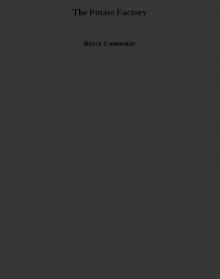 The Potato Factory
The Potato Factory The Power of One
The Power of One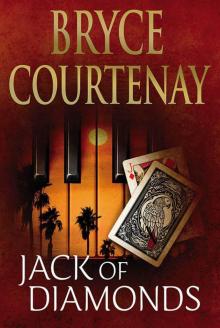 Jack of Diamonds
Jack of Diamonds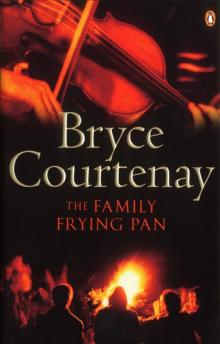 The Family Frying Pan
The Family Frying Pan April Fool's Day
April Fool's Day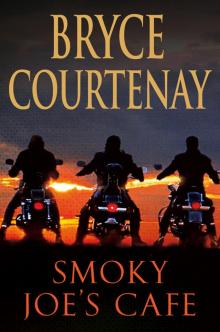 Smoky Joe's Cafe
Smoky Joe's Cafe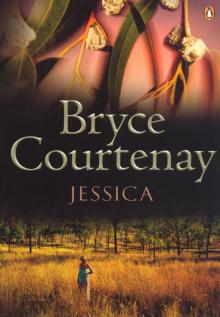 Jessica
Jessica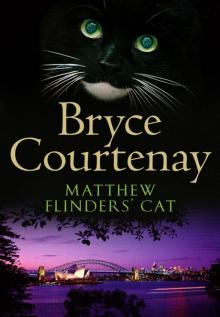 Matthew Flinders' Cat
Matthew Flinders' Cat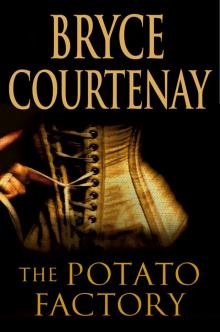 Potato Factory
Potato Factory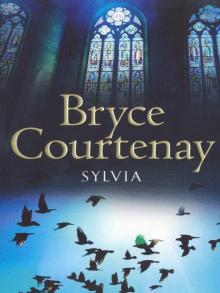 Sylvia
Sylvia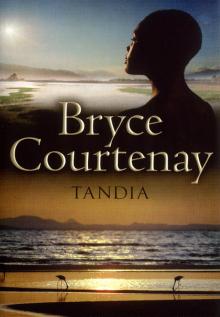 Tandia
Tandia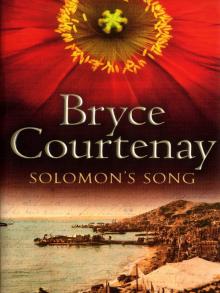 Solomon's Song
Solomon's Song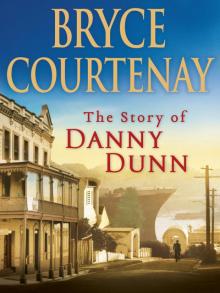 The Story of Danny Dunn
The Story of Danny Dunn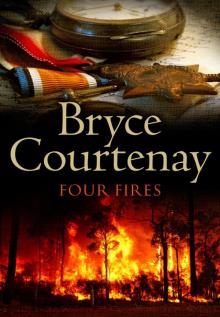 Four Fires
Four Fires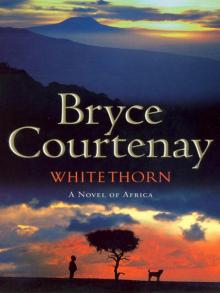 Whitethorn
Whitethorn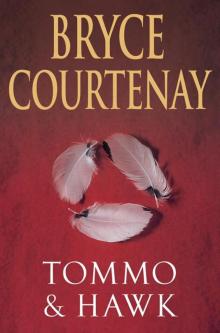 Tommo and Hawk
Tommo and Hawk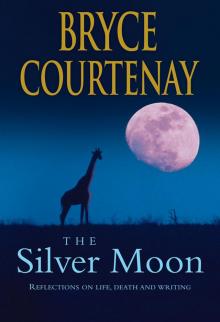 The Silver Moon
The Silver Moon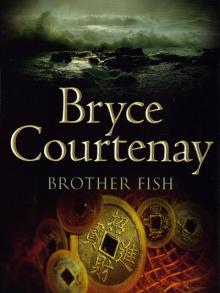 Brother Fish
Brother Fish FORTUNE COOKIE
FORTUNE COOKIE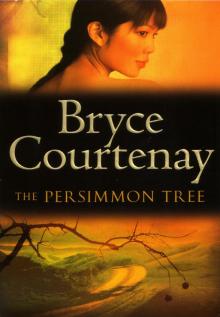 The Persimmon Tree
The Persimmon Tree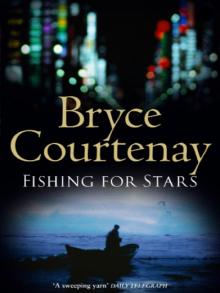 Fishing for Stars
Fishing for Stars